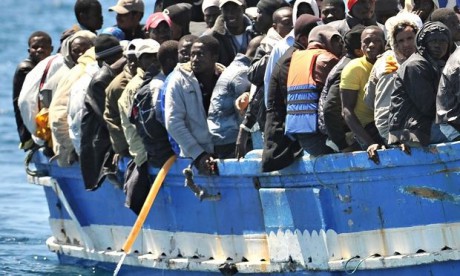Let us suppose that along the coast of Normandy up to one million non-EU migrants are waiting to be packed like sardines in small unseaworthy vessels and to cross the English Channel.
Let us suppose that first the Royal Navy, then the navies of a dozen other EU countries, start to search for all such vessels in the Channel right up to the French coast, out into the North Sea and the Atlantic even, and then ferry all the passengers on board to Dover, Folkestone, Hastings, Eastbourne and Brighton in a surreal modern-day never-ending version of the Dunkirk evacuation of 1940.
Would the British government agree to take them all? What of the British people? And if they did agree, what would the British government and people do with all the migrants? How would they cope?
Well, Italy has been invaded in just this way, by migrants from many nations all coming over here from Libya.
And Italy’s unelected government has agreed to take them all. This makes the Italian people — who are among the least racist in Europe — very angry. It’s hard to blame them.
In October 2013, Italy’s previous unelected government, which like the current one was left-wing, ordered the Italian navy to search for and rescue all boat people in the Sicilian channel and beyond.
This hugely expensive operation — ‘Mare Nostrum’ — ran until October last year and rescued nearly 190,000 people. The Italian government took this decision after a migrant boat sank with the loss of 360 lives 500 yards from an idyllic beach on the island of Lampedusa, once a resort of choice for the right-on rich.
The same left-wing Italian government also took the extraordinary step of decriminalising illegal immigration, which means among other things that none of the boat people are arrested once on dry land.
Instead, they are taken to ‘Centri di accoglienza’ (welcome centres) for identification and a decision on their destinies. In theory, only those who identify themselves and claim political asylum can remain in Italy until their application is refused — or, if it is accepted, indefinitely. Continue reading
Sources
- The Spectator
- Image: Right Speak
